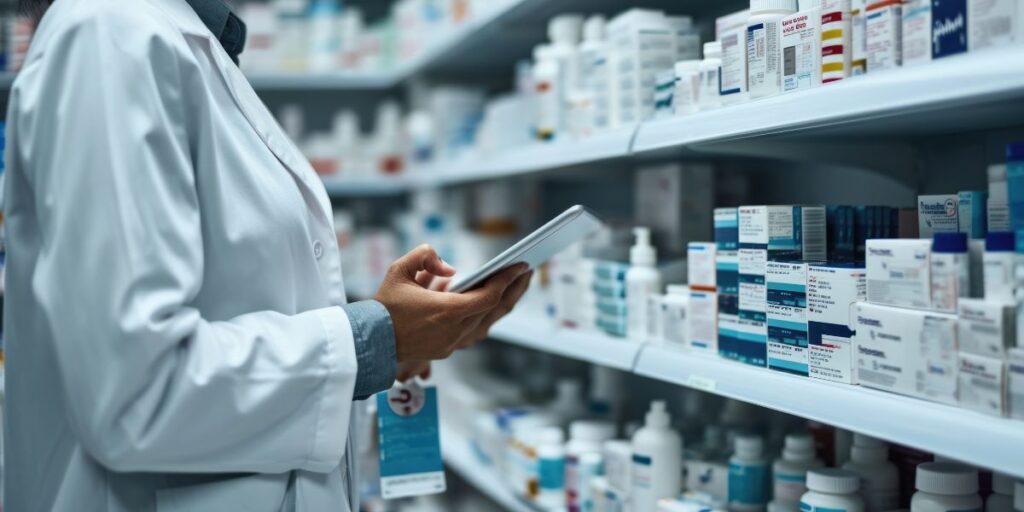Dangers of Prescription Drugs

Prescription drugs are the third leading cause of death in the United States. Many of the most dangerous drugs are prescribed to treat pain and various other medical conditions. They are commonly found in medicine cabinets in homes across the nation.
According to the National Institute on Drug Abuse (NIDA), approximately 52 million people across the nation have misused prescription medications at least once in their lives. A lot of individuals in addiction treatment mention that having access to prescription drugs at home was the initial step in their addiction journey.
There are several ways people misuse prescription drugs, such as:
- Taking a medication more often or in larger doses than the doctor recommends
- Using medication by oneself to improve one’s mood or health
- Obtaining medicines from friends or family members secretly
- Using drugs solely for enjoyment or to feel better
- Combining medications with other substances to increase the effects of both, known as polysubstance abuse
- Visiting multiple doctors to acquire additional prescriptions
The problems of prescription drug abuse, addiction, and overdoses are getting worse. Many reasons contribute to these sad facts. But every person who decides to fight their addiction and get help is doing their part to reduce these numbers.
What Are Prescription Drugs?
In the United States, a prescription drug is defined as any medicine that needs a doctor’s approval and a pharmacist’s help.
While this definition covers thousands of medicines for many health problems, only a few highly addictive prescription drugs are causing the big problem with addiction and overdoses.
Dangers of Prescription Drugs
The main risks of using prescription drugs are addiction and overdoses. Often, people don’t know or don’t think these risks are significant because they believe prescription medicine is safer than illegal drugs. This belief makes people ignore signs of growing addiction and the chance of overdoses.
Another hidden risk is wrong information about prescription drugs. This adds to the well-known dangers. Many patients trust their doctors, who might not fully understand how risky these drugs can be.
Some people don’t tell their doctors about their past drug use or other over-the-counter drugs they’re taking. This can lead to complicated problems.
Even medicines that are usually safe, if taken right and not with other drugs, can become addictive or harmful. This can happen if they’re mixed with vitamins, other medicines, illegal drugs, or alcohol, whether on purpose or by accident.

Most Dangerous Prescription Medications
According to US government agencies like the National Institute on Drug Abuse (NIDA) and Centers for Disease Control and Prevention (CDC), prescription opioids, painkillers, and central nervous system depressants such as anti-anxiety medications, prescription stimulants, and anabolic androgenic steroids are considered the most hazardous prescription drugs when it comes to abuse and overdose fatalities.
Opioids or Prescription Painkillers
Some of the most commonly prescribed opioids and painkillers are Oxycontin, Vicodin, and Percocet. Doctors give them to patients for medium to horrible pain, coughing, and diarrhea.
In 2021, around 17,000 people died from overdoses linked directly to prescription opioids. More than half of all deadly overdoses in the United States involve opioids mixed with other substances.
Side effects of prescription opioids and painkillers include:
- Feeling sleepy
- Tiredness
- Losing weight
- High blood pressure
- Breathing problems
- Damage to the liver
- Feeling sad or depressed
- Getting addicted to opioids
- Overdosing on drugs
Experts say the opioid crisis in the United States comes from doctors giving out too many prescription painkillers and opioid drugs for pain. People who get used to their medicine or can’t get or afford it from their doctors often start using illegal drugs like heroin to keep up with their opioid addiction.
Central Nervous Depressants
The most commonly prescribed medications for relaxing the central nervous system are Valium, alprazolam, Xanax, Ativan, Klonopin, and diazepam. These are better known as benzodiazepines, or “benzos” for short. Doctors give them to patients to help with anxiety disorders and long-term sleep problems because they relax the brain and spinal cord, making a person feel calm.
In 2021, about 12,500 people passed away from overdoses of benzodiazepines. Mixing these central nervous system depressants with opioids was the cause of nearly 16% of all overdose deaths.
Side effects of central nervous system depressants can include:
- Slowed breathing
- Slowed heart rate
- Decreased body temperature
- Feelings of confusion
- Numbness
- Loss of control of body movements
- Muscle twitches
- Seizures
Combining benzos with alcohol, opioids, or other sedative drugs can lead to deadly reactions, breathing problems, and overdoses.
Using central nervous system depressants for a long time isn’t safe because people can quickly become dependent and addicted. Many keep using benzodiazepines to stay away from withdrawal symptoms. Also, stopping drugs like Xanax can be very dangerous without a doctor’s help and supervision.
Prescription Stimulants (Adderall, Ritalin)
The prescription stimulants that doctors prescribe most often are Adderall, Ritalin, and Dexatrine. They are given to patients to treat ADHD or attention deficit hyperactivity disorder and sleep disorders.
It’s hard to know exactly how many people overdose on stimulants. This is because when people go to the emergency room, they often have problems with the drug’s side effects or have taken other substances, too. However, the National Institute on Drug Abuse (NIDA) and the Centers for Disease Control and Prevention (CDC) think there were about 13,000 overdoses linked to prescription stimulants in 2021.
Common side effects of prescription stimulants can include:
- Blood pressure and heart rate going up
- Body temperature rising
- Blood circulation is getting worse
- Blood sugar levels increasing
- Damage to the heart
- Losing weight
- Not being able to sleep
- Feeling overly suspicious or paranoid
- Experiencing psychosis
Young people and college students most often misuse prescription stimulants. They wrongly think these drugs will help them concentrate better and do well in school.
Anabolic Steroids
Anabolic androgenic steroids, which are a type of drug, don’t cause a high like the other medicines we talked about. But they are becoming more dangerous because more young people are misusing them, and they have harmful side effects.
Doctors give anabolic steroids to patients to help with hormone problems and muscle loss from diseases like cancer or HIV. Sadly, people who want to look more muscular for personal reasons misuse these drugs as appearance and performance-enhancing drugs (APEDs).
Common side effects of anabolic steroids and APEDs are:
- Damage to the liver
- Damage to the kidneys
- Heart failure
- Risk of having a stroke
- Higher chance of getting diseases from sharing needles
- More aggression and violence
- Mental health issues
- Feeling very sad or depressed
- Thinking about or trying to commit suicide
There aren’t any statistics on steroid overdoses; most of the time, people pass away because of increasing physical and mental health problems.

The Overprescribing of Prescription Drugs
Many studies, books, and documentaries look into the overprescribing of prescription drugs in the United States and why it happens. Peter C. Gøtzche, an author and researcher, boiled down the main reasons for widespread illegal activities, dishonesty, and weak drug regulations that need significant changes.
One well-known case of valuing profit more than people is Pfizer, the company that makes Oxycontin. They spent a lot of money to advertise their drug as safe and not addictive and even paid doctors to prescribe it for small pains.
At the same time, the Food and Drug Administration (FDA) said that they felt pressured and were swayed by money to allow the drug to be used by the public before they fully understood how much it could be abused and lead to addiction. Many other companies have paid money to settle issues out of court to avoid bad press.
In the United States, drug companies break the law about false claims almost three times more than any other industry, and they are also at the top for paying bribes and being corrupt around the world.
Another reason for too much prescribing is human mistakes and overconfidence. The average prescription drug comes with more than 20 warnings about dangerous interactions and side effects. Doctors can’t remember all of these by heart and often have to hurry with patients, not spending enough time to be careful.
As mentioned before, many people completely trust that medicine from a doctor is safe and ignore the instructions, using it how they want. Then, once someone has a problem with using substances, they may lie to doctors about their health and habits or go to many doctors to get more prescriptions.
The issue of misusing prescription medicine is complicated and doesn’t seem to have simple solutions. But the best step for anyone dealing with misuse or addiction to prescription drugs is to look for proven treatment to overcome the problem and improve their life.
Prescription Drug Addiction Treatment
If you or someone you care about is dealing with an addiction to prescription drugs, know that you’re not alone and you don’t have to keep suffering. There is help available.
Northridge Addiction Treatment Center provides a private, soothing, and tranquil environment for healing from prescription drug misuse and discovering a new path to a sober, fulfilling life in recovery.
NATC provides on-site medical detox to safely manage withdrawal symptoms with around-the-clock medical care and support. Our dedicated and caring team will work with you to tailor a treatment plan that builds your confidence, knowledge, and skills to reach your full potential, handle challenges, and maintain a life free from substance abuse.
Contact our treatment specialists to get the support you need. They are ready and willing to help you embark on a journey toward a life grounded in recovery.
Find Meaningful Recovery
Our caring and compassionate specialists are eager to help you comfortably navigate this journey to recovery. Our individualized treatment plan, programs, and therapies may be a perfect match for you or your loved one. Let us assist you in living the happy life you deserve. It starts with a phone call.




